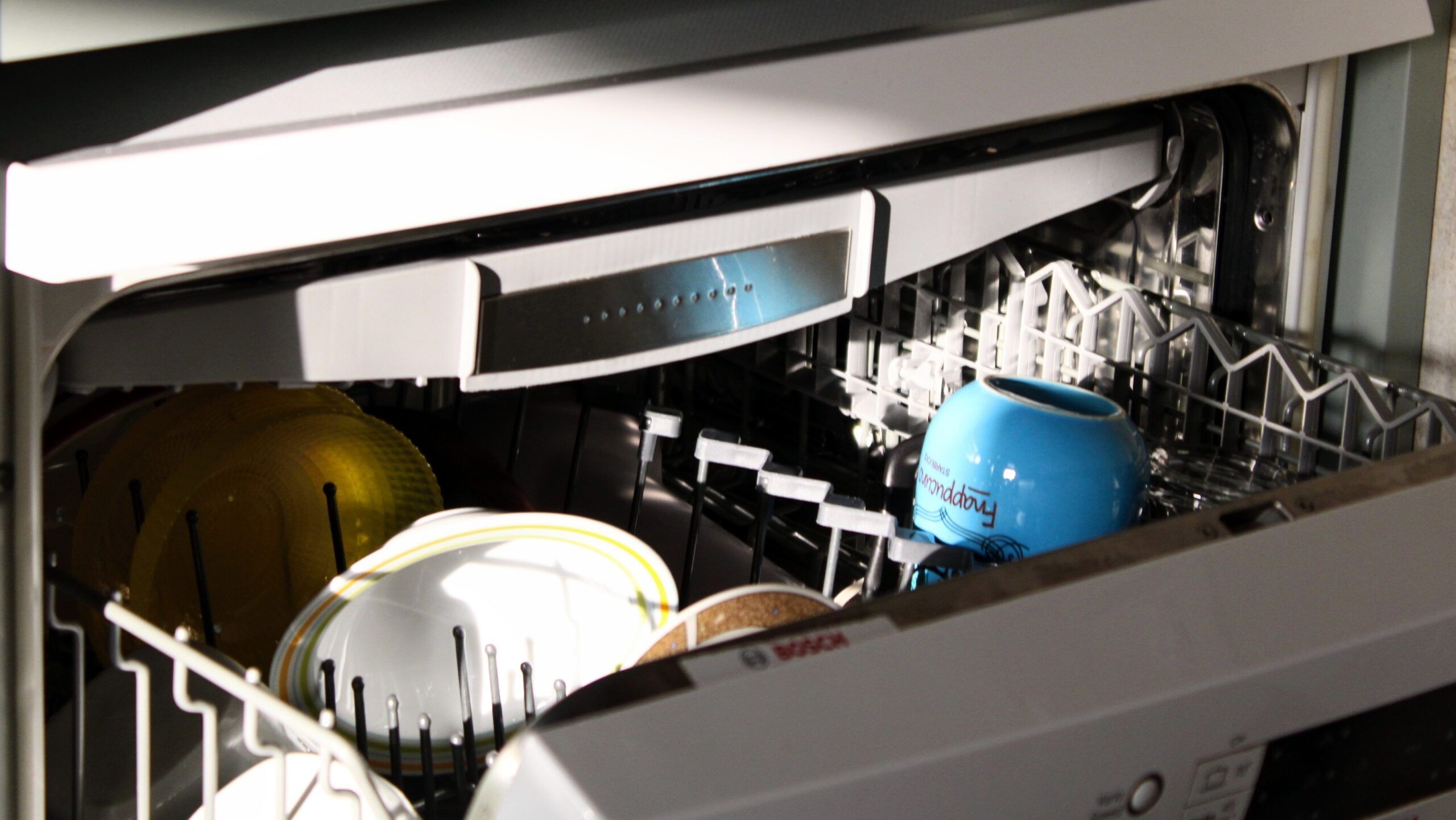
Understanding Why Your Dishwasher Isn’t Drying Dishes and How to Fix It
A dishwasher is an essential kitchen appliance that offers convenience and saves time. However, it can be frustrating when your dishwasher doesn’t dry your dishes properly, leaving you with wet and sometimes even spotted dishes. This article explores the possible reasons why your dishwasher might not be drying your dishes effectively and offers solutions to address these issues.
1. Improper Loading
Overloading or improper loading of the dishwasher can prevent it from drying the dishes effectively. When dishes are too close together, it can obstruct the flow of hot air meant to dry them.
**Fix:** Always load your dishwasher correctly. Ensure there’s enough space between dishes for air and water to circulate freely. Consult your dishwasher’s user manual for specific loading instructions.
2. Rinse Aid is Empty
Rinse aid plays a crucial role in the drying process. It reduces the surface tension of water, making it less likely to stick to the dishes and allowing it to evaporate more quickly.
**Fix:** Regularly check and refill the rinse aid dispenser. Most dishwashers have an indicator light to signal when it’s time to refill the rinse aid.
3. Faulty Heating Element
The heating element is responsible for raising the temperature inside the dishwasher during the drying cycle. If it’s not working properly, it may not produce enough heat to evaporate the water on your dishes.
**Fix:** Test the heating element with a multimeter to see if it has continuity. If it doesn’t, you’ll need to replace it. This task can be a bit complex, so consider hiring a professional if you’re not comfortable doing it yourself.
4. Broken Vent or Fan
Modern dishwashers often have a vent and fan system to help remove the hot, moist air from inside the dishwasher. If the vent doesn’t open or the fan doesn’t run, the steam won’t escape, and the dishes will remain wet.
**Fix:** Inspect the vent and fan for any possible issues. If the vent isn’t opening, it may be blocked, or the motor that controls it may be broken. If the fan isn’t running, it might need to be replaced. Consider consulting a professional for these repairs.
5. Defective Thermostat
The thermostat monitors the temperature inside the dishwasher and controls the heating element. If it’s defective, it may not signal the heating element to heat up, resulting in wet dishes.
**Fix:** A faulty thermostat should be replaced. Because this involves dealing with electrical components, it’s best to hire a professional to handle the replacement.
6. Inadequate Water Temperature
Hot water is crucial for both cleaning and drying dishes effectively. If the incoming water temperature is too low, it may not properly activate the detergent, and the dishes might not dry as they should.
**Fix:** Make sure your water heater is set to a high enough temperature. Most manufacturers recommend a temperature of at least 120 degrees Fahrenheit for optimal dishwasher performance.
7. Using the Wrong Cycle
The chosen wash cycle can also affect the drying performance. Some energy-saving or quick wash cycles may not include a heated drying cycle.
**Fix:** Choose a wash cycle that includes a heated dry phase. Keep in mind that these cycles may use more energy and take longer to complete.
8. Old or Inefficient Model
Older or more basic dishwasher models may not have the advanced drying features found in newer or high-end models. These dishwashers rely more on the heat of the washed dishes to evaporate water, which may not be as effective.
**Fix:** Consider upgrading to a newer model with better drying capabilities. Many new dishwashers have features like heated drying, fan-assisted drying, or even specialized drying technologies like Bosch’s ‘Zeolith’ or Siemens’ ‘Zeolite’ drying.
9. Dishwasher Design and Material of Dishes
The material of your dishes can also influence drying. For instance, plastic items don’t retain heat as well as glass or ceramic, and may not dry as effectively. Moreover, some dishwasher designs, especially those with a flatware rack on the top, may prevent steam from reaching the vent, limiting the drying process.
**Fix:** Be aware of the limitations when washing plastic items. You may need to towel-dry these by hand. If you consistently have issues with certain types of dishes or with your dishwasher’s design, you may want to consider a different model that better suits your needs.
10. Clogged or Dirty Filters
Clogged or dirty filters can reduce the overall efficiency of the dishwasher, including its ability to dry dishes. The filters protect the pump and drain motor by trapping food and other debris.
**Fix:** Regularly clean the filters to ensure they’re not clogged. Check your dishwasher manual for specific instructions on how to remove and clean your dishwasher’s filters.
11. Malfunctioning High Limit Thermostat
The high limit thermostat is a safety device that keeps the dishwasher from getting too hot. If it’s faulty, it may shut off the heat prematurely, preventing the dishes from drying.
**Fix:** Test the high limit thermostat with a multimeter for continuity. If it’s faulty, you’ll need to replace it. This task should be handled by a professional to ensure safety and proper installation.
In conclusion, there are numerous reasons why your dishwasher might not be drying dishes effectively. While some fixes can be done at home with basic troubleshooting, others might require professional expertise. Regular maintenance can help prevent many of these issues and extend the lifespan of your appliance. Always prioritize safety when dealing with electrical appliances and don’t hesitate to call a professional when in doubt. Your dishwasher is a valuable tool, and keeping it in optimal condition will ensure its longevity and performance.
Appliance repair, Appliance repair in Burnaby, Appliance repair in New Westminster, Appliance repair in Vancouver, Appliance repair near me, Coquitlam, Dishwasher repair, Doctor appliance, Dryer repair, Freezer repair in Burnaby, Fridge repair in Burnaby, Oven repair, Port Coquitlam, Port Moody, Refrigerator repair in Burnaby, Stove repair, Washer repair, Washing machine repair
